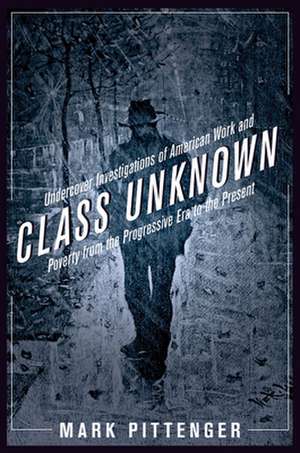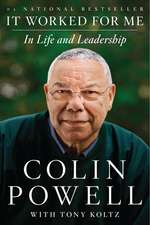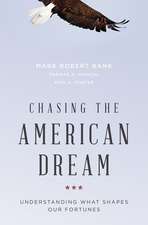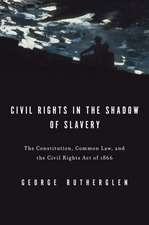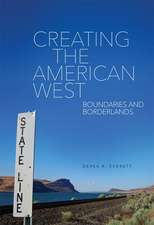Class Unknown – Undercover Investigations of American Work and Poverty from the Progressive Era to the Present: Culture, Labor, History
Autor Mark Pittengeren Limba Engleză Hardback – 12 aug 2012
| Toate formatele și edițiile | Preț | Express |
|---|---|---|
| Paperback (1) | 241.46 lei 6-8 săpt. | |
| MI – New York University – 12 aug 2012 | 241.46 lei 6-8 săpt. | |
| Hardback (1) | 528.07 lei 6-8 săpt. | |
| MI – New York University – 12 aug 2012 | 528.07 lei 6-8 săpt. |
Preț: 528.07 lei
Preț vechi: 685.80 lei
-23% Nou
Puncte Express: 792
Preț estimativ în valută:
101.06€ • 109.73$ • 84.89£
101.06€ • 109.73$ • 84.89£
Carte tipărită la comandă
Livrare economică 22 aprilie-06 mai
Preluare comenzi: 021 569.72.76
Specificații
ISBN-13: 9780814767405
ISBN-10: 0814767400
Pagini: 288
Dimensiuni: 153 x 229 x 15 mm
Greutate: 0.56 kg
Ediția:New.
Editura: MI – New York University
Seria Culture, Labor, History
ISBN-10: 0814767400
Pagini: 288
Dimensiuni: 153 x 229 x 15 mm
Greutate: 0.56 kg
Ediția:New.
Editura: MI – New York University
Seria Culture, Labor, History
Recenzii
"Before anthropologists became 'participant observers' or Norman Mailer discovered the 'new journalism,' generations of socially engaged Americans assumed undercover identities and conducted covert investigations to experience and report upon the reality of life for the nations poor and marginalized. Mark Pittengers original and highly readable book illuminates the motivations and strategies of these reform-minded investigators, and the work they produced. Class Unknown enlarges our understanding of journalism, reform, and the shifting perceptions of social class in America. I enjoyed this book and learned from it." Paul Boyer, Merle Curti Professor of History Emeritus, University of Wisconsin-Madison"With smooth prose, expansive reflection, and unerring eye for telling detail, Pittenger turns what may superficially seem an esoteric and even quirky subject into a major work of intellectual history and cultural criticism. The undercover investigations that he shows to be a mainstay of the American documentary tradition--from the writings of the Progressive Walter Wyckoff, the managerial studies of Elton Mayo, and the radical portraits of Donald Roy through books and film treatments of Laura Hobson (Gentlemen's Agreement) and Howard Griffin (Black Like Me) to the present-day commentaries of Barbara Ehrenreich--regularly attempt to 'domesticate difference'; i.e. they help a largely white, middle-class public to sympathize with and/or better control the behavior of an elusive ethnic, class, or racial Other. Whereas his 'class-passers' and 'down-and-outers' sought to familiarize readers with people rendered distant from themselves by their poverty or ascribed group identity, so Pittenger freshly portrays the investigators as a distinct set of middle-class professionals well worth knowing." Leon Fink, University of Illinois at Chicago"A wide-ranging, erudite, and fascinating analysis of how various journalists, academics, and novelists shed their identities to become the 'Other.' From the Gilded Age to the present, Pittenger takes us on a journey with temporary down-and-outers as they tramp the countryside, experience the urban netherworld, and cross racial lines. He uncovers a tradition of critique and elitism; a struggle over the meaning of authenticity and more emerge in these pages." George B. Cotkin, California Polytechnic State University"Pittenger's fascinating account of cross-class journeys yields rich insight into the changing constructions of class, race, and self in modern America and brings into focus a little-studied aspect of the history of social science, journalism, and popular culture." Dorothy Ross, Arthur O. Lovejoy Professor of History, The Johns Hopkins University
"Before anthropologists became 'participant observers' or Norman Mailer discovered the 'new journalism,' generations of socially engaged Americans assumed undercover identities and conducted covert investigations to experience and report upon the reality of life for the nation's poor and marginalized. Mark Pittenger's original and highly readable book illuminates the motivations and strategies of these reform-minded investigators, and the work they produced. Class Unknown enlarges our understanding of journalism, reform, and the shifting perceptions of social class in America. I enjoyed this book and learned from it." Paul Boyer, Merle Curti Professor of History Emeritus, University of Wisconsin-Madison "With smooth prose, expansive reflection, and unerring eye for telling detail, Pittenger turns what may superficially seem an esoteric and even quirky subject into a major work of intellectual history and cultural criticism. The undercover investigations that he shows to be a mainstay of the American documentary tradition--from the writings of the Progressive Walter Wyckoff, the managerial studies of Elton Mayo, and the radical portraits of Donald Roy through books and film treatments of Laura Hobson (Gentlemen's Agreement) and Howard Griffin (Black Like Me) to the present-day commentaries of Barbara Ehrenreich--regularly attempt to 'domesticate difference'; i.e. they help a largely white, middle-class public to sympathize with and/or better control the behavior of an elusive ethnic, class, or racial Other. Whereas his 'class-passers' and 'down-and-outers' sought to familiarize readers with people rendered distant from themselves by their poverty or ascribed group identity, so Pittenger freshly portrays the investigators as a distinct set of middle-class professionals well worth knowing." Leon Fink, University of Illinois at Chicago "A wide-ranging, erudite, and fascinating analysis of how various journalists, academics, and novelists shed their identities to become the 'Other.' From the Gilded Age to the present, Pittenger takes us on a journey with temporary down-and-outers as they tramp the countryside, experience the urban netherworld, and cross racial lines. He uncovers a tradition of critique and elitism; a struggle over the meaning of authenticity and more emerge in these pages." George B. Cotkin, California Polytechnic State University "Pittenger's fascinating account of cross-class journeys yields rich insight into the changing constructions of class, race, and self in modern America and brings into focus a little-studied aspect of the history of social science, journalism, and popular culture." Dorothy Ross, Arthur O. Lovejoy Professor of History, The Johns Hopkins University
"Before anthropologists became 'participant observers' or Norman Mailer discovered the 'new journalism,' generations of socially engaged Americans assumed undercover identities and conducted covert investigations to experience and report upon the reality of life for the nation's poor and marginalized. Mark Pittenger's original and highly readable book illuminates the motivations and strategies of these reform-minded investigators, and the work they produced. Class Unknown enlarges our understanding of journalism, reform, and the shifting perceptions of social class in America. I enjoyed this book and learned from it." Paul Boyer, Merle Curti Professor of History Emeritus, University of Wisconsin-Madison "With smooth prose, expansive reflection, and unerring eye for telling detail, Pittenger turns what may superficially seem an esoteric and even quirky subject into a major work of intellectual history and cultural criticism. The undercover investigations that he shows to be a mainstay of the American documentary tradition--from the writings of the Progressive Walter Wyckoff, the managerial studies of Elton Mayo, and the radical portraits of Donald Roy through books and film treatments of Laura Hobson (Gentlemen's Agreement) and Howard Griffin (Black Like Me) to the present-day commentaries of Barbara Ehrenreich--regularly attempt to 'domesticate difference'; i.e. they help a largely white, middle-class public to sympathize with and/or better control the behavior of an elusive ethnic, class, or racial Other. Whereas his 'class-passers' and 'down-and-outers' sought to familiarize readers with people rendered distant from themselves by their poverty or ascribed group identity, so Pittenger freshly portrays the investigators as a distinct set of middle-class professionals well worth knowing." Leon Fink, University of Illinois at Chicago "A wide-ranging, erudite, and fascinating analysis of how various journalists, academics, and novelists shed their identities to become the 'Other.' From the Gilded Age to the present, Pittenger takes us on a journey with temporary down-and-outers as they tramp the countryside, experience the urban netherworld, and cross racial lines. He uncovers a tradition of critique and elitism; a struggle over the meaning of authenticity and more emerge in these pages." George B. Cotkin, California Polytechnic State University "Pittenger's fascinating account of cross-class journeys yields rich insight into the changing constructions of class, race, and self in modern America and brings into focus a little-studied aspect of the history of social science, journalism, and popular culture." Dorothy Ross, Arthur O. Lovejoy Professor of History, The Johns Hopkins University
Notă biografică
Mark Pittenger is Associate Professor of History at the University of Colorado, Boulder. He is the author of American Socialists and Evolutionary Thought, 1870 - 1920.
Descriere
Offers a new perspective on contemporary debates over how we understand and represent our own society and its class divisions
